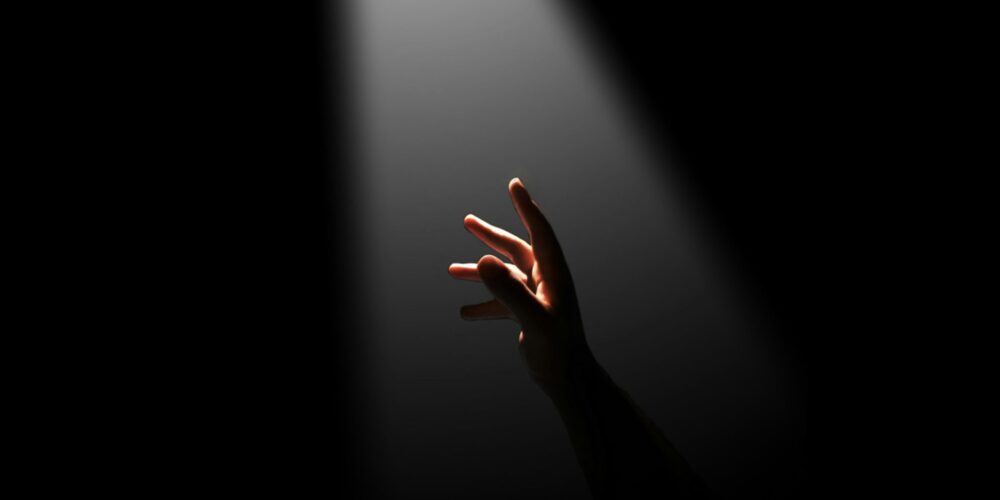Are you suffering from the Spotlight Effect?

Picture yourself on a dark stage, delivering the central performance of the day. A spotlight is shining right on you, staying with you as you move. All else is dark. There are hundreds of people in the audience, but you can barely make them out. All their attention is on you: how you look, and how you will perform. There is pin-drop silence as you stare at the crowd.
Nervous, much?
If you have been on stage in that situation, heck, yeah, you will be nervous. Even seasoned performers are. But special situations are not the point of today’s column. Most people don’t need to climb nervously onto a stage to feel the withering glare of the spotlight—they face it every day in their regular lives.
The Spotlight Effect was coined by behavioural psychologists. It refers to the common tendency to believe we are being observed by others far more than we actually are. The Spotlight Effect is a psychological lens that magnifies our self-consciousness: it makes us believe we are at the centre of everyone’s attention. Plot twist: we are not!
The Spotlight Effect can be very troubling. We imagine that every blemish on our face, every fashion faux pax or wardrobe malfunction in our attire, every grammatical error is being noticed and judged by others. We imagine that we are starring in our life’s play every day, with a tough audience scrutinizing us and rating us, scene by scene.
But wait. Before we go any further, who is at the centre of your universe? You know the answer: it’s you! All your consciousness is activated through yourself, so you fixate on yourself—your feelings, your priorities, your needs—all the time. You give yourself hyper-attention, but have only fleeting awareness of everyone else.
So if that’s true of you, it’s equally true of everyone else. The reason no one really fixates on what you’re doing is simple: they’re too busy fixating on themselves! It may be entirely human to feel watched, because of how important we are to ourselves. But it’s just as human to be too absorbed in oneself to pay anything more than momentary heed to anyone else.
I don’t mean to imply that we are too selfish to be concerned about anyone else; we of course pay deeper attention to our nearest and dearest. Life partners, for example, have often studied each other very acutely over the decades; mothers know more about their progeny than anyone else can. But even there, the mind’s way of giving attention is self-referential—we centre on our own emotions, even when being generous with our attention.
We are not invisible to others; nor are our actions inconsequential to them. But we don’t have the audience we think we do; and the gaze of that audience is not as piercing or as persistent as we might imagine it is. This is good news—it frees us up from the exaggerated sense of scrutiny that might be paralyzing us.
Knowing the Spotlight Effect allows us to feel more free to be our authentic selves. It allows us to be more unguarded and less inhibited in our ordinary lives. We can focus on our own music, rather than the imagined whispers of our non-existent audiences.
If you are a businessperson or manager, know this: you think about your business a lot; but your customers really do not. You do not feature in the grand scheme of their lives at all. You only matter to the average customer when they need to pay attention to you. Katelyn Bourgoin, a thoughtful buyer-behaviour guru, tells us that unless something is going very well, or very poorly, your customers won’t think about you at all. And that’s a good thing.
It means, for example, that you will be forgiven many inconsequential mistakes. But it also means you won’t be noticed unless you are worth noticing. This suggests that your best messages need smart repetition; and that your best messages need to be about your customer’s lives, not about yours.
This is a general lesson in life. People only notice things that place them at the centre, not you. They insert themselves into your story regardless, so you might as well centre your communication on them—their needs, their feelings, their payoffs. Not yours. Smart communicators have always known this, and have used it to their advantage.
Let’s end with a subtler point. Other people may not be that focused on you, but that doesn’t mean you need to be ignorant of them. We can all become better by inverting the Spotlight Effect and giving at least a few more people our undivided attention: our curiosity, as well as our empathy. Why should you do that? Because it makes you a better human: more insightful, and more compassionate. As I have often observed on this page, the best lives radiate outwards.
(Sunday Nation, 18 February 2024)

Buy Sunny Bindra's new book
The X in CX
here »
Popular Posts
- Make this your year of being boringJanuary 4, 2026
- Can we please stop with the corporate jargon?January 11, 2026
- My books of the yearDecember 14, 2025
- Confessions of an explaining personDecember 7, 2025
- Here’s why you should become foolishNovember 30, 2025















